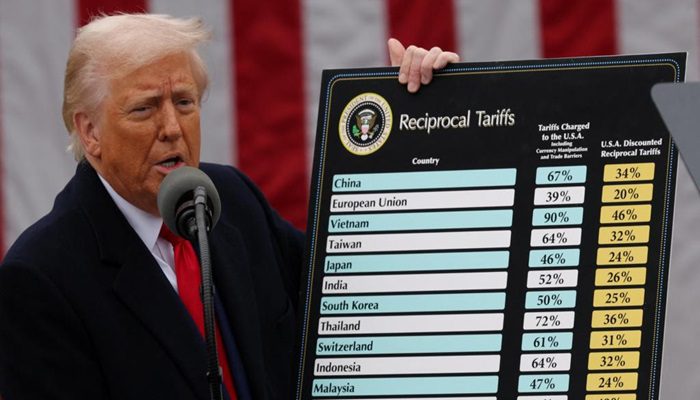The Federation of Associations of Ghanaian Exporters (FAGE) has issued a strong call for the formation of a joint task force to respond to the recent imposition of a 10% universal tariff by the United States on imports from Ghana and other countries.
FAGE is urging swift, strategic collaboration between government, trade experts, and the private sector to shield Ghana’s economy from the potential fallout.
In a statement, FAGE described the development as a serious concern, warning that the tariff, alongside the pending expiration of the African Growth and Opportunity Act (AGOA), poses a major threat to Ghana’s export-led industries and broader economic stability.
AGOA at risk, jobs on the line
“For years, AGOA has granted duty-free access to Ghanaian exports entering the U.S. market, helping industries such as textiles, apparel, agriculture, and footwear thrive,” the Federation stated.
“These exports are not just trade figures—they represent livelihoods for thousands of Ghanaian families.”
FAGE expressed concern that if the new tariffs are extended to AGOA-covered goods—or if AGOA is not renewed before its September 2025 expiration—Ghana’s export competitiveness in the U.S. market could erode rapidly.
This, they said, could trigger order cancellations, workforce layoffs, and a contraction of non-traditional exports.
Diplomacy, trade diversification
The exporters’ body urged the Government of Ghana to intensify diplomatic engagement with Washington to seek exemptions for Ghanaian goods under the new tariffs. They also called on the government to lobby aggressively for the renewal of AGOA, describing it as a pillar of Ghana’s export growth and industrial development.
Simultaneously, FAGE called for an accelerated implementation of the African Continental Free Trade Area (AfCFTA), which could provide an important buffer by boosting intra-African trade and reducing dependence on volatile external markets.
“We must take this moment as an opportunity to re-evaluate and strengthen our trade strategies,” the Federation said. “Greater regional integration will help Ghana become more self-reliant and resilient in the face of global shocks.”
Joint task force to chart the way forward
To lead the response, FAGE is advocating for the creation of a joint task force made up of representatives from government, industry groups, and trade experts.
The body would be tasked with crafting a long-term, coordinated strategy to navigate the U.S. tariff challenge, support vulnerable sectors, and ensure Ghana remains competitive on the global stage.
“We remain confident in the ingenuity of our exporters,” the statement read.
“Through strategic collaboration, innovation, and adaptability, we can transform these challenges into opportunities for growth.”
Rising production costs add to woes
FAGE also flagged the risk of rising production costs for Ghanaian businesses, as the tariffs may impact critical U.S. imports including machinery, petroleum products, and raw materials.
This could hurt local manufacturing and further undermine the competitiveness of Ghana’s exports globally.
Despite these risks, the Federation maintained a hopeful tone, pledging to work closely with members to diversify product offerings and explore new export destinations to cushion against the impact of U.S. trade policy changes.
“Ghana’s resilience lies in our unity and proactive approach,” FAGE concluded. “Now more than ever, stakeholders must come together to protect the gains we have made and chart a sustainable path for the future of our export sector.”
- Monday, April 28, 2025 Newspaper Headlines - 28 April 2025
- Oquaye report findings revealed - 28 April 2025
- GFA President Kurt Okraku appointed CAF’s second Veep - 28 April 2025




